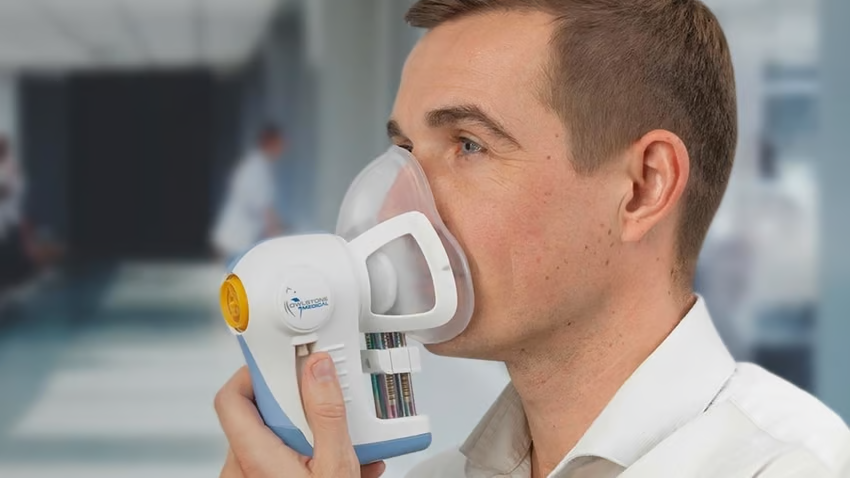King Charles III’s cancer was caught early. Many Brits aren’t so lucky.

It’s not unusual for the rich and famous — and not to mention royalty — to receive top medical care: Charles was at a private hospital in London when his cancer was found, and his cancer treatment began less than two weeks after his diagnosis.
But the vast majority of Britons don’t use private health care; instead, they rely on the country’s free public health-care system — the National Health Service, which is deeply beloved, but also faces serious funding problems and long waiting times.
More than a third of patients in England had to wait more than 62 days to begin cancer treatment after being referred for urgent diagnostic tests, and more than 1 in 10 had to wait more than 104 days after an urgent referral before starting treatment, according to recent government figures shared by Cancer Research UK.
And the long wait times can be particularly concerning given the importance of early detection and treatment, and the differences they can make to cancer survival rates.
The issue has become a public preoccupation for many in the United Kingdom — with Sunak pledging to cut health-care waiting times as one of his five political promises (one he admitted this week he had failed to meet). At one point, the BBC website put out an interactive page titled: “Cancer care delays: How bad are they in your area?”
The NHS, which was founded in 1948 — the same year that King Charles was born — is a key institution of British public life that promises free health care for all residents. It regularly tops opinion polls in the U.K., with Britons expressing more affection for it than the monarchy, even as they express growing concerns about its future.
Now, the British Medical Association, a trade union representing doctors and medical students, says the system is “experiencing some of the most severe pressures in its 75-year history.”
The NHS’s record on meeting cancer targets is “not great” and has been “getting worse,” due to issues including a lack of funding and staffing, Tom Roques, a consultant clinical oncologist and the vice president of clinical oncology at the Royal College of Radiologists, said in a telephone interview Wednesday. “We know that cancer targets have been missed month on month now for, for many years.”
Under Britain’s system, any patients wanting a cancer diagnosis need to begin with a visit their local family doctor, or general practitioner — because the only way to access tests or specialist care is via a referral from a GP. The family doctor will assess their symptoms, and, if they consider that the symptoms meet the criteria for specialist tests or treatment, refer them to a specialist.
From there, the government has a target for patients to be diagnosed and begin treatment within 62 days of a hospital referral. However, some patients have experienced difficulties having their symptoms taken seriously by their GP, or have trouble getting an appointment in the first place.
Another issue is that many cancers are detected incidentally, when the patient is receiving treatment for something else — as was the case for Charles. But treatment for many non-cancer cases are classified as “non-urgent,” with those patients being put on general hospital waiting lists — which are even longer, reaching a record high of over 7.6 million last year — meaning they could wait months before they’re even put on the cancer waiting list.
“There is emerging evidence that the longer you wait to start treatment the worse your chances of being cured are,” Roques said.
While different types of cancer grow and spread at very different rates, “any delay is difficult for patients when they are waiting for treatment,” Roques added.
“I just think if you’ve been told that you might have cancer, you just want to know one way or the other straight away. And if you’re told that you have cancer and you need treatment, again, most people want to get started on that very quickly for psychological reasons.”
The major issue affecting waiting times for cancer patients, he argues, is capacity — from a lack of GPs, which may delay a patient reporting their symptoms in the first place, to a lack of scanners and staff to carry out biopsies or interpret test results.
“And there are staff shortages in all of those areas because of chronic underinvestment in staffing in the NHS,” he says, including a 20 percent shortage of oncologists. This “inevitably means people will wait longer than they ought to see a cancer specialist.”
Naser Turabi, Cancer Research the U.K.’s director of evidence and implementation, also believes capacity is a key issue, pointing to research that found the U.K. was ranked near the bottom of 36 developed countries for the average number of CT and MRI scanners available — the United States, by comparison, came fourth.
The country also spends less than money per capita on health than many other Western countries.
Roques notes that various studies have shown that U.K. cancer outcomes — the chances of being cured of cancer — “are not quite as good in the U.K. as many other places around the world.”
However, there may be different reasons for this including the fact “we have very good conversations with patients about quality of life” in Britain.
“I think perhaps compared to the U.S. in particular, we probably treat fewer patients because we have those conversations and people don’t want the treatment … if your cancer is not curable, it may be entirely right for an individual not to have treatment and to focus on good quality time with their friends and family rather than coming to hospital for chemotherapy.”
Turabi, meanwhile, thinks that “once people get to the treatment, we have extremely high levels of satisfaction and we have some of the best treatment services in the world. … The issue is access to that and equitable access to that.”
link





